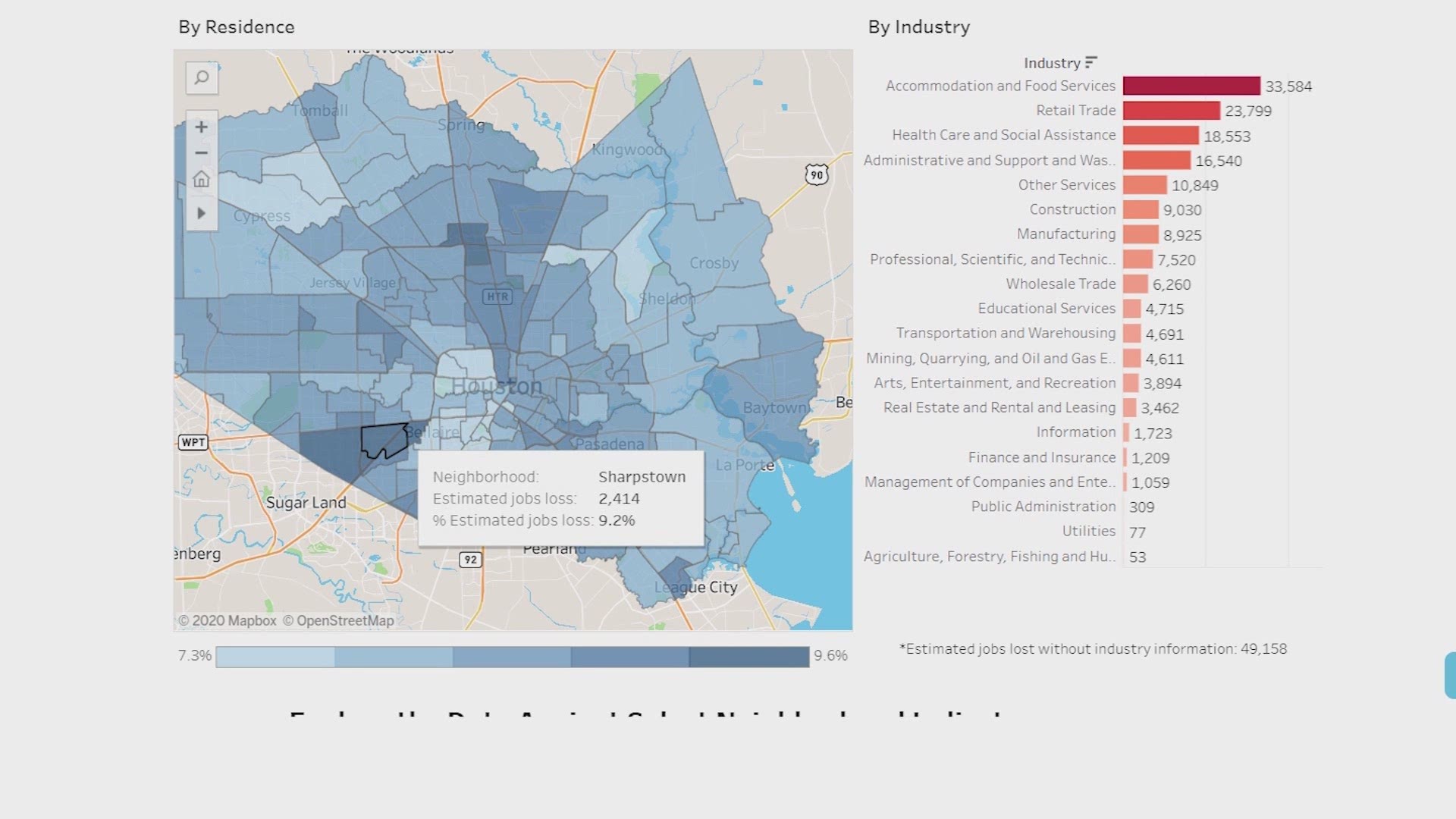HOUSTON — Health officials are taking a new approaching at tracking the spread of the novel coronavirus: monitoring the city’s wastewater.
The Center for Disease Control and Prevention said the virus can is discarded through people's waste. So, the Houston Health Department has partnered with Rice University to test for the presence of COVID-19.
From there, health officials can estimate what percentage of people in surrounding neighborhoods may be infected.
Dr. David Persse, the city’s leading health authority, said they’re still in the early stages and trying to refine the data coming in.
“If there may not be a lot of testing going on (in an area), but there’s a high percentage of cases, that’s telling,” Persse said.
But there’s a lot of data—and waste—to sort through before health officials can begin making recommendations.
“No one has ever done this before,” Persse said. “We’ve never tracked an illness across a huge community, testing individuals and testing wastewater.”
MORE ON THE CORONAVIRUS
- Houston leaders counting on city businesses to voluntarily comply with occupancy rules
- 'Unconscionable' body overflow at New York City funeral home prompts probe
- Map: Keeping track of Houston-area coronavirus cases
- LIST: Texas A&M, Texas Tech, Baylor among colleges planning to reopen campuses in the fall
Coronavirus symptoms
The symptoms of coronavirus can be similar to the flu or a bad cold. Symptoms include a fever, cough and shortness of breath, according to the Centers for Disease Control. Some patients also have nausea, headaches and stomach issues.
Most healthy people will have mild symptoms. A study of more than 72,000 patients by the Centers for Disease Control in China showed 80 percent of the cases there were mild.
But infections can cause pneumonia, severe acute respiratory syndrome, kidney failure and even death, according to the World Health Organization. Older people with underlying health conditions are most at risk for becoming seriously ill. However, U.S. experts are seeing a significant number of younger people being hospitalized, including some in ICU.
The CDC believes symptoms may appear anywhere from two to 14 days after being exposed.
Human coronaviruses are usually spread through...
- The air by coughing or sneezing
- Close personal contact, such as touching or shaking hands
- Touching an object or surface with the virus on it, then touching your mouth, nose or eyes before washing your hands.
Help stop the spread of coronavirus
- Stay home when you are sick.
- Eat and sleep separately from your family members
- Use different utensils and dishes
- Cover your cough or sneeze with your arm, not your hand.
- If you use a tissue, throw it in the trash.
- Follow social distancing
Lower your risk
- Wash your hands often with soap and water for at least 20 seconds. If soap and water are not available, use an alcohol-based hand sanitizer.
- Avoid touching your eyes, nose, and mouth with unwashed hands.
- Avoid close contact with people who are sick.
- Clean and disinfect frequently touched objects and surfaces.
- If you are 60 or over and have an underlying health condition such as cardiovascular disease, diabetes or respiratory illnesses like asthma or COPD, the World Health Organization advises you to try to avoid crowds or places where you might interact with people who are sick.
Get complete coverage of the coronavirus by texting 'FACTS' to 713-526-1111.

